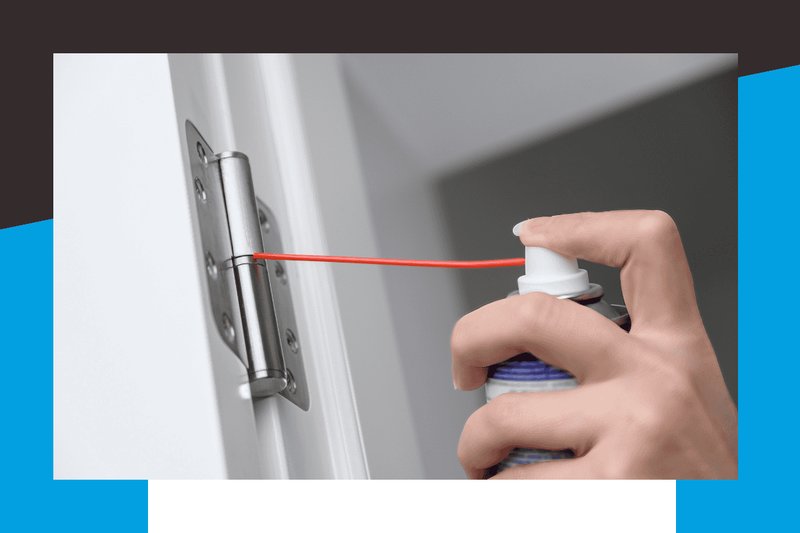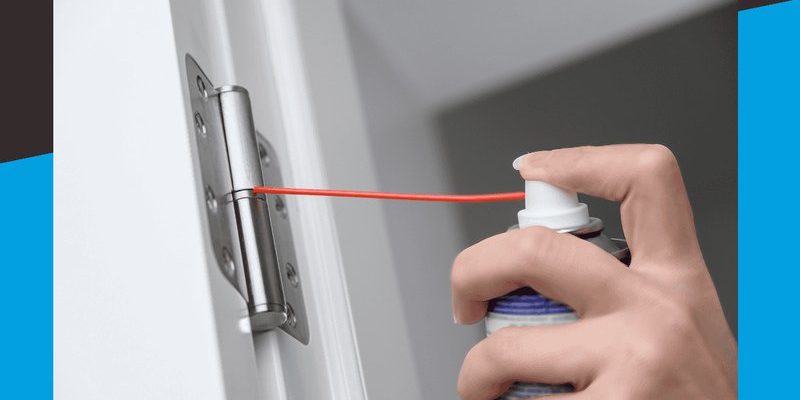
Getting the right lubricant can save you from a lot of frustration down the road. Why deal with a stuck latch when a simple spray can keep it moving freely? We’ll cover various popular brands and the lubricants that work best with them, so you can keep your doors functioning smoothly without any fuss.
Understanding Door Latches
Door latches play a crucial role in the security and functionality of your doors. They’re the mechanisms that hold your door closed, and they can vary widely in design and material. Most latches operate using a simple metal bolt that slides into a strike plate, securing the door. Over time, dirt and debris can build up, making it harder for the latch to engage or disengage. This is where lubrication comes in.
When looking for the right lubricant, it’s important to consider the specific latch you’re working with. Some latches are made from different materials, which can affect how they respond to various lubricants. By understanding the basics of how latches work, you can choose the best lubricant to keep them in top shape.
Silicone Spray for Schlage Door Latches
If you have a Schlage door latch, a silicone spray is an excellent choice. This type of lubricant is specially designed to penetrate tight spaces, providing a long-lasting, weather-resistant barrier. It doesn’t attract dirt like some oil-based lubricants, which means your latch stays cleaner for longer.
Applying silicone spray is straightforward. First, clean the latch area to remove any debris. Then, simply spray a small amount directly onto the latch mechanism and work it in by opening and closing the door a few times. You’ll likely notice less resistance immediately, ensuring smoother operation.
One of the benefits of using silicone spray is its versatility. Not only can it be used for door latches, but it also works well on window tracks and other moving parts around your home, making it a handy tool to have around.
Graphite Powder for Kwikset Door Latches
For Kwikset door latches, graphite powder is often the best lubricant. Unlike oil-based lubricants, graphite is dry and won’t attract dirt or grime, which is essential for keeping your latch functioning smoothly. It works by reducing friction between moving parts, making it ideal for metal-on-metal applications like door latches.
To use graphite powder, you’ll typically want to start by opening the door and applying a small amount of the powder directly into the latch area. Make sure to close the door a few times to help distribute the graphite evenly. This simple application can make a huge difference in how easily your latch operates.
Graphite also has the advantage of being a cleaner option compared to other lubricants. You won’t have to worry about messy spills or sticky residues, which can be a plus when working around your home.
WD-40 for Yale and Emtek Door Latches
If you’re dealing with Yale or Emtek door latches, a good all-purpose option is WD-40. While it’s famous for its many uses, it’s also an effective lubricant that can displace moisture, reduce corrosion, and loosen stuck mechanisms. However, it’s essential to use it carefully, as over-application can lead to buildup.
To apply WD-40, first, you’ll want to clean the latch to remove any dust or grime. Then spray a small amount onto the latch mechanism, allowing it to seep into the parts. Open and close the door several times to ensure the lubricant gets into all the nooks and crannies. Just be sure to wipe away any excess to avoid a sticky mess.
One thing to keep in mind is that while WD-40 is great for short-term lubrication, it may not provide lasting protection like some specialized products. It’s suitable for quick fixes but might need reapplication sooner than others.
Lithium Grease for Bumpers and Heavy-Duty Latches
If you have heavy-duty door latches—like those found on industrial doors or certain outdoor gates—lithium grease is a fantastic choice. It’s thick and can handle the demands of a heavier latch that may experience more wear and tear.
To use lithium grease, start with a clean surface. Apply a small amount directly to the latch mechanism and work it in well. Unlike lighter lubricants, lithium grease stays where you put it, making it effective for long-lasting lubrication.
While it can be a bit messier than other options, the durability and high performance of lithium grease make it worthwhile for those tougher applications. You might even find it useful for other areas, like garage doors or automotive parts.
Oil-Based Lubricants for Specialty Latches
For specialty latches, like those on antique doors or certain types of sliding doors, an oil-based lubricant can be beneficial. Oil-based products are typically more versatile and can penetrate various materials effectively. However, they do require a bit more maintenance since they can attract dirt over time.
When using oil-based lubricants, make sure to apply them sparingly. A little goes a long way! Apply it directly to the latch mechanism and ensure to wipe away any excess, keeping your door area clean. Regular maintenance will help keep your latch functioning well without the buildup that can occur with excessive application.
Choosing the right oil-based lubricant can also depend on the specific latch design, so always take a moment to read the manufacturer’s recommendations if available.
Finding the right lubricant for your door latches can make a world of difference in their performance. Whether you have a Schlage, Kwikset, Yale, or another brand, there’s a specific lubricant that will help keep your doors operating smoothly. From silicone sprays to graphite powders, each type has its unique benefits.
Taking the time to maintain your door latches with the correct lubricant not only saves you from annoying squeaks and jams but also extends the lifespan of your hardware. So next time you’re faced with a stubborn latch, remember the right lubricant is just a spray or a dab away. Your doors will thank you!
